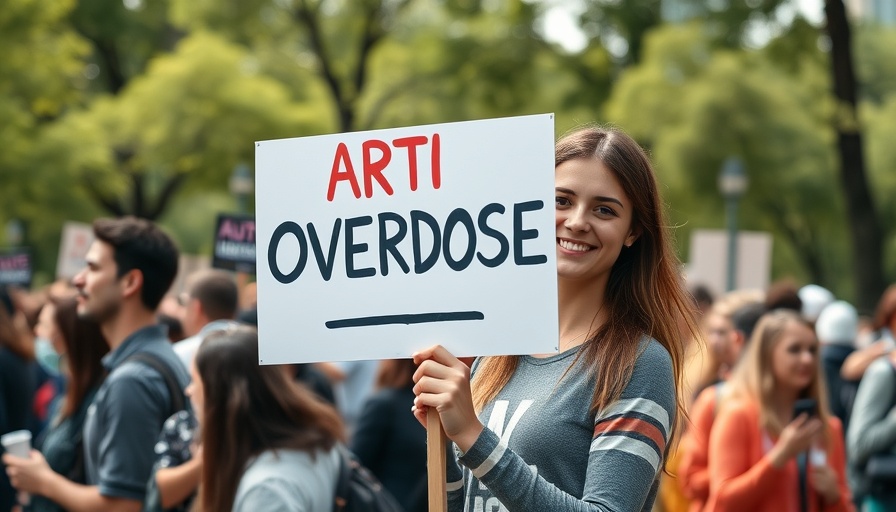
The Crisis Unfolding: Understanding the Opioid Epidemic's Impact on Black Communities
The opioid crisis has long been viewed through a lens that predominantly highlights its impact on white communities. However, as startling statistics reveal, Black communities are increasingly affected by opioid misuse and overdose deaths. In North Carolina, for instance, the rate of opioid-related overdose deaths among Black residents has surged to 38.5 per 100,000—more than doubling since 2019. As communities like Mecklenburg County grapple with this growing epidemic, it becomes clear that the conversation around opioid addiction must expand to address the disconnect in treatment and resources available to Black patients.
Voices from the Frontline: Personal Stories Driving Change
One of the most poignant voices in this fight is Terica Carter, founder of Hajee House Harm Reduction in Charlotte. Her story began with the tragic loss of her son, Tahajee, who died from an overdose after unknowingly consuming a fentanyl-laced Percocet. Carter's grief propelled her to establish a nonprofit aimed at filling significant gaps in knowledge and support for opioid overdose prevention within her community. "Nobody was acknowledging it, and I felt so alone," she stated, embodying the sentiment of many who feel sidelined in the opioid conversation.
The Disparities in Healthcare Access: Barriers to Treatment
Despite Carter's efforts and those of other local organizations, significant barriers to treatment for Black individuals persist. Data shows that nationally, Black people are half as likely to be referred for treatment compared to their white counterparts, even after experiencing nonfatal overdoses. In North Carolina, the disparity is magnified; white individuals comprised 88% of those receiving opioid prevention services funded by substantial federal grants, leaving a mere 7.5% of the population served for Black residents—despite Black individuals making up nearly a quarter of the state’s demographic.
Tackling Systemic Issues: The Role of Policy and Awareness
Addressing the systemic issues contributing to these disparities requires more than localized programs. It necessitates a re-examination of healthcare policies that govern access to treatment. Effective federal and state funding needs to be redirected to ensure equitable access to opioid use prevention and treatment services that overtly include the experiences and needs of historically marginalized groups. Advocates argue that systemic change in policy is crucial to dismantling the barriers faced by Black patients who seek help.
Community Solutions: Local Organizations Leading the Charge
Organizations like Hajee House are making strides in providing critical resources directly to the community. They offer syringe exchanges, naloxone distribution, and education on safe consumption practices—all essential in reducing the risks associated with opioid usage. By meeting individuals where they are, in familiar and supportive environments, these organizations are fostering connections that can ultimately lead to recovery.
Future Insights: What Needs to Change?
As we pivot towards a future where opioid addiction is approached with deeper understanding and broader inclusivity, large-scale education campaigns are necessary. Messaging that resonates with underserved communities must be prioritized. This includes integrating culturally competent care models within treatment facilities and engaging Black communities in the design and implementation of strategies aimed at combatting the opioid crisis in their neighborhoods. Empowering individuals with knowledge and resources will foster a stronger foundation for healing.
Conclusion: A Call for Collective Action
The conversation about the opioid crisis must evolve to include the voices of Black communities and others disproportionately affected by addiction. The stories of people like Terica Carter remind us that behind every statistic is a life lost and a family mourning. It is essential that business leaders, healthcare professionals, and policymakers come together to reconfigure how we address this crisis. By breaking down barriers and improving access to care, we can start saving lives today. Let’s advocate for change, push for equitable healthcare practices, and stand in solidarity with those fighting the effects of this devastating epidemic.
 Add Row
Add Row  Add
Add 




Write A Comment